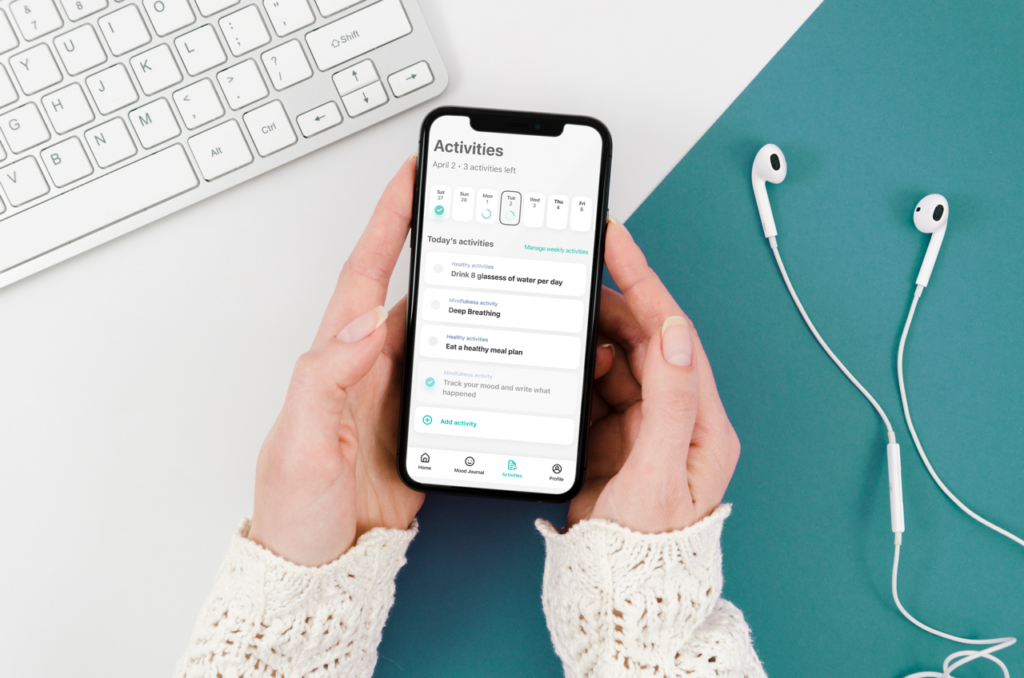
After the hype of New Year’s resolutions faded, so did the progress for many – primarily because they experienced setbacks. The initial failure can make it seem like it’s impossible to make habits stick whatsoever.
It can be highly frustrating to look back and realize that the habit you really wanted to develop has slowly faded into nothingness.
So, the crushing disappointment raises an important question – why even try to learn a new language, eat healthily, or give a shot to any other habit if we’re going to fall back into our old ways eventually?
What Makes a Habit “Sticky”?
A European Journal of Social Psychology study revealed that habit formation takes anywhere from 18 to 254 days, depending on your personality and the difficulty of the habit.
The problem is that most people give up after 5–7 days. That barely makes a difference in behavior and routine – dropping an activity after a week is easy since you’re not used to it.
We usually crave changes that are positive and permanent.
So, to make a new habit stick, you’ll need glue.
Guidance, reminders, and practical tools in the Sensa app are designed to help you attach your new habits to your personal routine – just like glue adheres two pieces of paper.
Use these 4 simple yet effective strategies to make your habit “glue” even more long-lasting.
#1 Start Small
Dreaming big and imagining massive changes helps us see the full picture of what we want to achieve. However, impeccable transformations come from little changes.
Let’s say you have a fitness goal you want to fulfill. While it’s impossible to gain or lose weight overnight, tiny changes in your routine will help you work toward your end goal.
Using a tool like Sensa’s activity tracker and beginning with a 7–15 exercise routine every few days provides you with consistency and the ability to work in small, manageable steps while still keeping your final objective in mind. Consistency and small steps are what makes habits stick better.
What’s even more important is that Sensa’s tracker serves as a reminder – cues like notifications trigger you to practice your habit.

#2 Track Your Progress
Working toward developing a habit can seem like a never-ending journey, especially if you can’t see progress immediately.
But looking back on your activity tracker and journal entries can help you visualize how long you’ve been sticking to your new habit.
Reviewing your journey helps you analyze what went wrong, how to improve, and notice the milestones you’ve passed.
If you wrote down, “I added a new activity in my activity tracker and started practicing it” today, you’ll feel much more confident and improved a few weeks later.
#3 Prepare for Setbacks
It’s completely normal to experience setbacks when you’re trying to make habits stick. Since the habit is not yet automatic, it’s much easier to unintentionally forget or dismiss it because “you’re not feeling it” now.
Setbacks are often harsher for people that struggle with procrastination or have the inattentive form of ADHD, but that doesn’t mean that they can’t form solid daily routines.
Instead of dropping the habit, prepare a quick action plan of what you will do when experiencing a setback – ask yourself what went wrong.
You may need to invest less time into the habit daily because your routine suffers, or maybe something emotionally prevents you from continuing.
Try mood tracking and journaling about how you feel when you’re working toward a new habit – this will help you understand your emotional state and reveal what you can do to prevent lapses in the future.
#4 Be Accountable for Your Habits
Always remember that you’re doing it for yourself, so take responsibility for improvement.
However, it may not be easy to be accountable for yourself. Instead, try to find an accountability partner – a family member, a friend, or a coach – who will help you stay on track. Share your goal with people and ask them to check your progress occasionally.
If you desire to work on your habits alone, Sensa will cheer you on as you progress in your journey and provide you with your personal trends over the weeks.
Positive reinforcement motivates you to push forward, but don’t forget that your opinion and motivation matter the most.
Forming Habits With Sensa
While some find it easier to develop and make habits stick, others experience loads of struggle.
But it doesn’t matter if you’re among those that need a little push and some more time – Sensa is designed with cognitive behavioral therapy (CBT) principles that assist you based on your unique needs.
CBT treatment is excellent for people who:
- Find it difficult to stick to routines
- Struggle to understand what’s holding them back
- Fear failure, or are perfectionists
Harness self-control and focus on your long-term goals instead of instant gratification with Sensa and your personal plan.
Over time, you’ll notice that forming new habits is more accessible and less stressful. So, don’t wait around – start the journey toward a better, stronger, and happier you.





